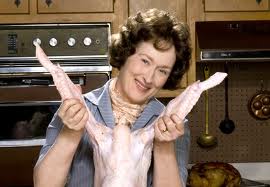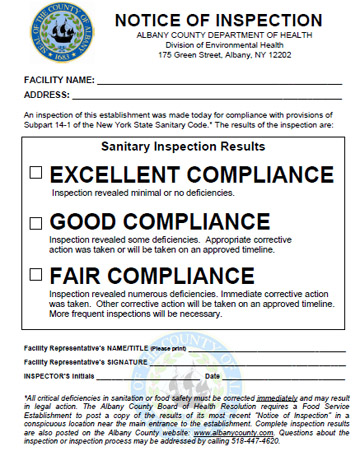Lawyers, prepare your briefs.
And put on clean ones.
The New York Post reports on Gotham’s burgeoning food porn trend to consume meat raw, and lining up for the privilege.
Takashi is one of a small but growing number of restaurants around the city catering to those who are rah-rah about consuming their animal flesh raw-raw.
The first dish to come out is the yooke, ground chuck prepared like a Japanese version of steak tartare. Topped with a raw quail egg, it’s adorned with Japanese seaweed and an enormous shiso leaf.
It’s also by far the tamest uncooked dish at Takashi, which gets its meat from some of the better purveyors .jpg) around, such as Dickson’s Farmstand and Pat LaFrieda.
around, such as Dickson’s Farmstand and Pat LaFrieda.
Maybe they have those CSI UV goggles that make dangerous bacteria visible. Otherwise, it’s hucksterism to charge a premium.
“Raw meats or undercooked foods leave you at risk of infection [of parasites or a slew of other illnesses],” says Dr. Michael Mansour of the division of infectious diseases at Massachusetts General Hospital.
According to NYC’s Department of Health, restaurants must notify diners when food isn’t cooked to required temperatures — either verbally or by printing this on the menu. A diner may also request such a dish. Basically, it’s buyer beware — though the DOH says it will investigate complaints of people getting sick from eating raw food. But with so many New Yorkers obsessed with high-quality ingredients, meat so fresh it can be served raw is seen as a benchmark — not a danger.
Food porn trumps.
At downtown’s Acme, you’ll find endive leaves stuffed with a mix of raw bison and sweet shrimp. At Manzo in Eataly, Piedmontese beef is hand-cut and ground to order. Hakata Tonton, just a couple of blocks from Takashi, offers veal liver sashimi on its menu, as does EN Japanese Brasserie on Hudson Street. Last fall, Hecho en Dumbo in the East Village offered venison tartare on the chef’s menu. (It plans to bring it back next fall, too.)
And then there’s raw chicken, a dish not for the squeamish. “There are a lot of places in the city that serve raw chicken,” says Dave Pasternack, chef-owner of Esca in Hell’s Kitchen. But you might have to ask, with a nudge and a wink, to go off the menu.
For some, raw meat is uncontroversial. “It’s my soul food,” says Takashi’s Inoue, who grew up in Osaka. “That’s how we eat in my home in Japan. The meat is very, very fresh.”
Very fresh, except when it sickens and kills, like it did in Japan last year, leaving four dead and at least 70 sickened with E. coli O111 from raw beef.
Pick your poison.

.jpg) The health department stressed that Twin Trees Too cooperated fully.
The health department stressed that Twin Trees Too cooperated fully..jpg) going to eat at restaurants with a “C.”
going to eat at restaurants with a “C.”
 permitted to re-open.
permitted to re-open. matrix takes into account the number of “blue” (minor) and “red” (serious) violations a restaurant receives.
matrix takes into account the number of “blue” (minor) and “red” (serious) violations a restaurant receives..jpg) chairwoman of the council’s Health Committee, which has maintained oversight of the health department.
chairwoman of the council’s Health Committee, which has maintained oversight of the health department..jpg) Department of Agriculture and Markets oversees establishments that operate supermarkets, bodegas or wholesale markets as 50% or more of their business.
Department of Agriculture and Markets oversees establishments that operate supermarkets, bodegas or wholesale markets as 50% or more of their business..jpg) restaurant, a food cart or even a convenience store.”
restaurant, a food cart or even a convenience store.”.jpg) Nobody’s happy.”
Nobody’s happy.”.jpg) purchased from Jerry Dell Farm should contact their health care provider.
purchased from Jerry Dell Farm should contact their health care provider.